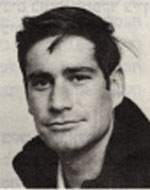Starting Sunday evening, May 9 through Monday, May 10 we observe “Yom Yerushalayim” – Jerusalem Day, marking the day on the Hebrew calendar when the Old City of Jerusalem (and especially the Kotel – the Western Wall), was liberated during the Six-day War and became part of one united Jerusalem under Israeli control. For many in Israel – and throughout the Jewish world – this is both a national and religious holiday. (Not everyone sees it that way.)
For me, the holiday is particularly significant, as I was blessed to visit Israel and Jerusalem for the first time, on the Ramah Seminar, during the summer of 1967 – just a few weeks following the Six-Day War. Thirteen years later my family and I moved to Jerusalem. For nearly 40 years our home has been in the southern neighborhood of Gilo, founded just four years after the war in what became Greater Jerusalem.

There have been many songs written about Jerusalem – before and since the Six-Day War. I would like to share one of my favorites with you – less known internationally than the famous “Jerusalem of Gold.” The song, “OHR VIRUSHALAYIM” – “Light and Jerusalem,” was written by Yosef Sarig (pronounced: sah-REEG). On this post you’ll find a link to one of several renditions of the song, as well as a link to the lyrics in Hebrew and English. The story of how it came about is as moving as the song itself:
The following is based on recollections by Yosef’s mother and brother, Tikva and Tzachki. His father was General Nahum Sarig, commander of the legendary Palmach unit in the Negev Desert during the 1948 War of Independence.
The Sarig family lived on kibbutz Bet Hashita in the Bet She’an valley in the north of Israel. In January of 1963, Yosef’s grandmother died. Since she was a fourth – or fifth – generation Jerusalemite, the parents borrowed one of the kibbutz trucks to bring the deceased to eternal rest in Jerusalem. The parents sat in the cabin of the truck and their five children sat in the back – together with the coffin. It was a particularly wintry day and it poured most of the way. All of a sudden, as they approached the beginning of the steep ascent to Jerusalem (at Sha’ar Hagai), the sun started to come out and a rainbow appeared. The rays of the sun piercing through the clouds, which accompanied them all the way to the cemetery, particularly made an impression on Yosef.
In January, 1972, Yosef, who was a talented musician and song-writer, was asked to write a song about Jerusalem for the Gevatron (singing) Ensemble’s performance in honor of Jerusalem Day that year. One evening he went to his room and in matter of hours wrote both the music and lyrics for the song. He came out and – as was his custom – he showed the lyrics to his mother asking if it was any good. She saw right away that his words described the light that they had seen on their way to Jerusalem exactly nine years earlier. She looked at him and said, “It’s enchanting… but what about the music?” He pulled out another page with the music which seemed to resonate perfectly with the lyrics.
On October 10, 1973, just a year and five months after the song was first performed, Major Yosef Sarig fell in battle on the Golan Heights. He was buried in his kibbutz along with ten other sons of the kibbutz who died in the Yom Kippur War. (The kibbutz was the community in Israel with the highest per capita casualties of that war.) Yosef’s brother, Tzachki, had been wounded at the beginning of the war and was in the hospital when Yosef was killed. His family waited until Tzachki was on his way to recovery before telling him the sad news. He became depressed with guilt, saying: “Why him and not me!”
OHR VIRUSHALAYIM became an instant “hit” and ever since has become an integral part of Israel’s musical legacy. It’s been translated into several languages. A folk dance to the song was choreographed by Shoshana Koplewitz. Ironically the lyrics do not mention the name of the city, except in its title. There’s no need; the song describes Jerusalem in a most unique and beautiful way. In 1975 Yosef was posthumously awarded the Medal of Distinguished Service (Itur Hamofet), but his songs – especially Ohr Virushalayim – were his awards to the nation. May his memory continue to be for a blessing.
Some links:
The song as sung by the Gevatron Ensemble:
The lyrics in Hebrew and English: See PDF above to view or download.
A clip of the folk dance (for instructions for dancing, watch from the beginning of the video).
https://youtu.be/KQAVpGdj4z4?t=152
שַׁ֭אֲלוּ שְׁל֣וֹם יְרוּשָׁלִָ֑ם יִ֝שְׁלָ֗יוּ אֹהֲבָֽיִךְ׃
Pray for the Peace of Jerusalem.
May those who love you be at peace. (Psalm 122)